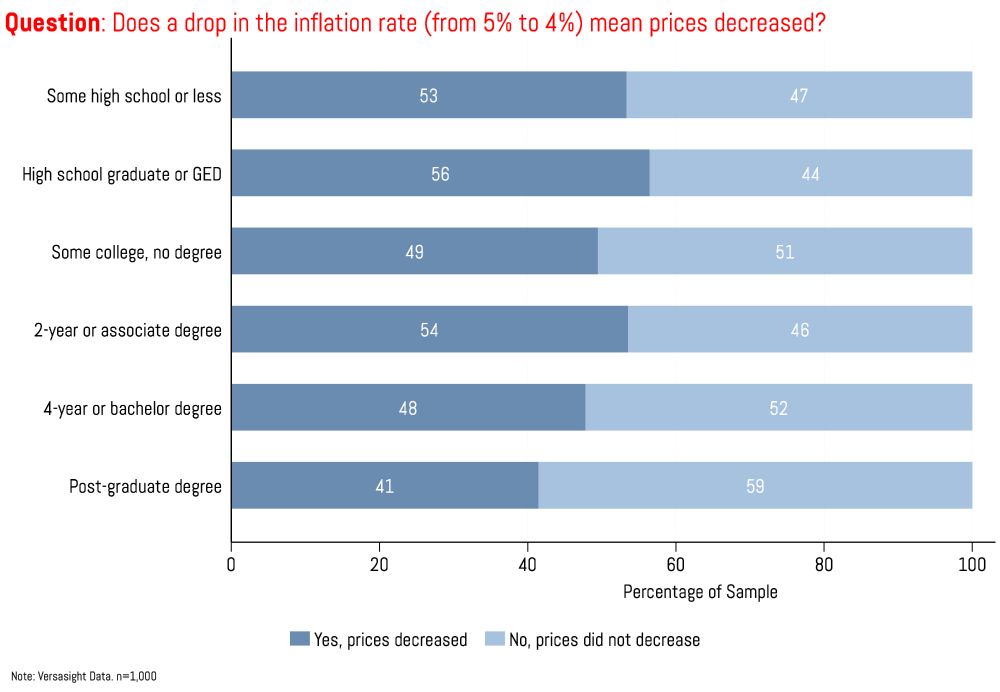by John Kane
Lots of good advice here 👍

by John Kane
by John Kane — Reposted by: Winston T. Lin
IMO, there are only 3 good reasons to do it. One of them needs to be true--otherwise, don't.
medium.com/the-quantast...

by John Kane
by John Kane
by John Kane — Reposted by: David Darmofal
@miacosta.bsky.social, in the new @apsa.bsky.social Experiments Newsletter!
In it, we offer some thoughts on how to think about how "realistic" experimental results are. Might be useful for students 😁
connect.apsanet.org/s42/newslett...
by John Kane
medium.com/the-stata-ga...

by John Kane
I've been wanting to write this one for a long time and just posted it on Medium (no paywall 👍). For the profs out there, it might serve as a useful class reading (?). Hope you enjoy!
medium.com/@jvk221/3-st...

by John Kane
Lots more to do on this, so thank you for the feedback! 😁
by John Kane
But yeah, edu is definitely a part of the puzzle.
by John Kane
But even still, it's a surprisingly small % 😕

by John Kane
by John Kane
by John Kane — Reposted by: Scott Clifford
But do citizens understand how to interpret inflation rates?
Using some new data from @verasight.bsky.social, the answer seems to be largely: no.
On top of that, Republicans show significantly less understanding than Democrats.
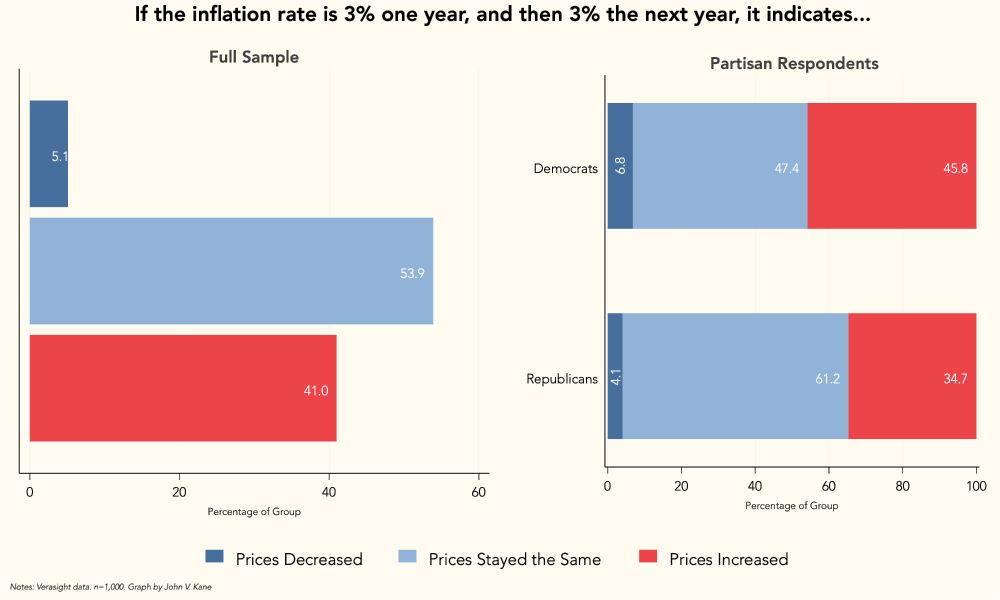
Reposted by: John Kane, Scott Clifford
www.cambridge.org/core/journal...
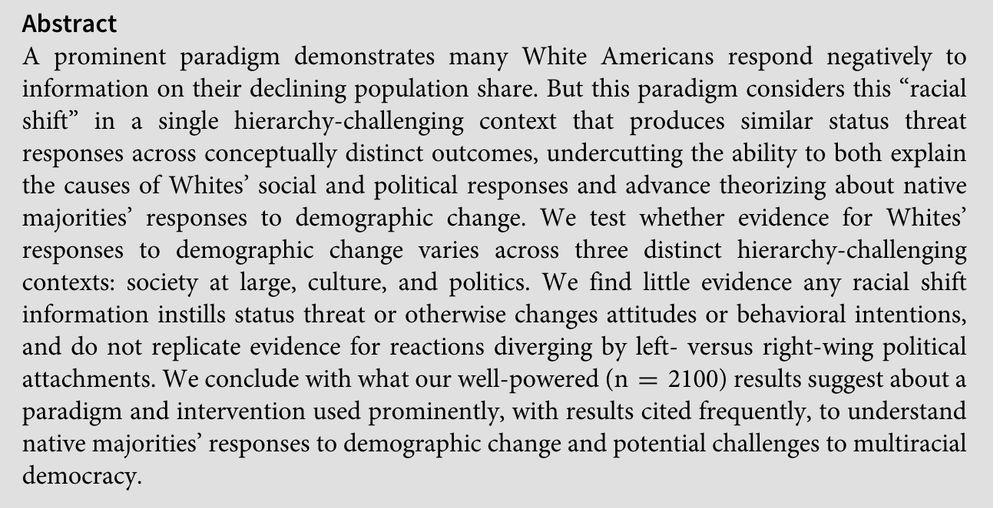
Reposted by: John Kane
"Kane (2025) as a Power Paper"
Kane (2025) makes several suggestions for compelling null results. These also help us maximize statistical power.
www.carlislerainey.com/blog/2025-03...

by John Kane
It's a good lesson for PhD students--this started as a short homework assignment for a class on causal inference. At first I just wanted to know if MC placement matters. But over time, it turned into much more & led to several more papers.

by John Kane
by John Kane
Yep, empirically, a candidate whose party has already served two terms may have a slight disadvantage—but it doesn’t seem to be inherent.
That disadvantage, though, pales in comparison to the advantage held by 1-term incumbents (historically speaking) 👍

by John Kane
by John Kane
Key finding: Being an incumbent president comes w/ inherent electoral advantages after 1 term. After 2 terms, a party is not inherently *dis*advantaged--just no more incumbency advantage.
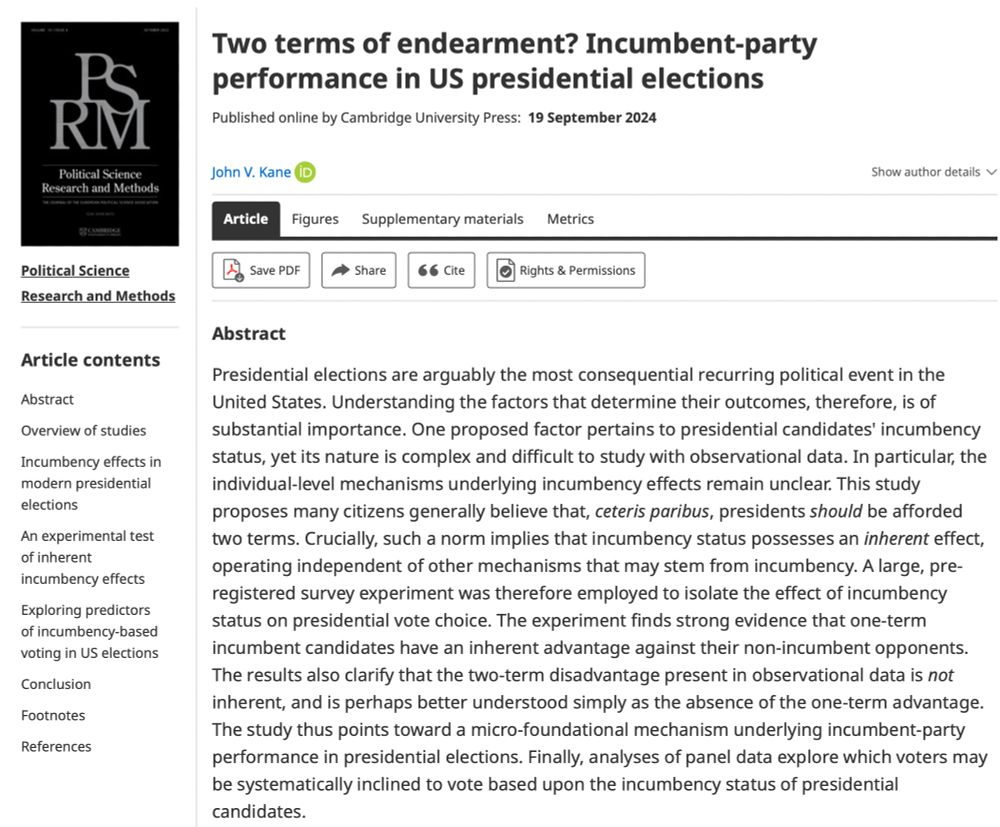
by John Kane
by John Kane
(From an ongoing project with @iganson.bsky.social; n = ~1,100; graph made in @statacorp.bsky.social 😊)

by John Kane
by John Kane
5+ years in the making.
249 pages.
82,000 words.
0 ChatGPT. 😉
A million thanks to all those who gave me guidance and inspired me along the way! 🙏
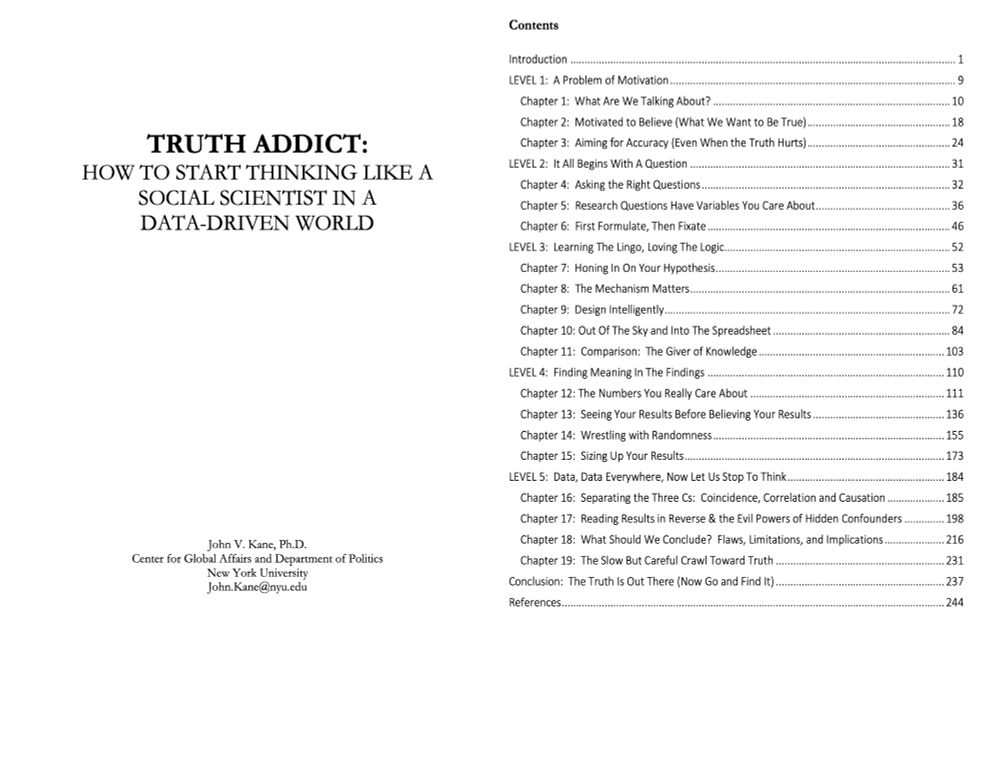
by John Kane
Reposted by: John Kane

by John Kane

by John Kane
BUT, per your idea about taking actual econ courses, there is definitely some evidence that those with higher education are better on this question
